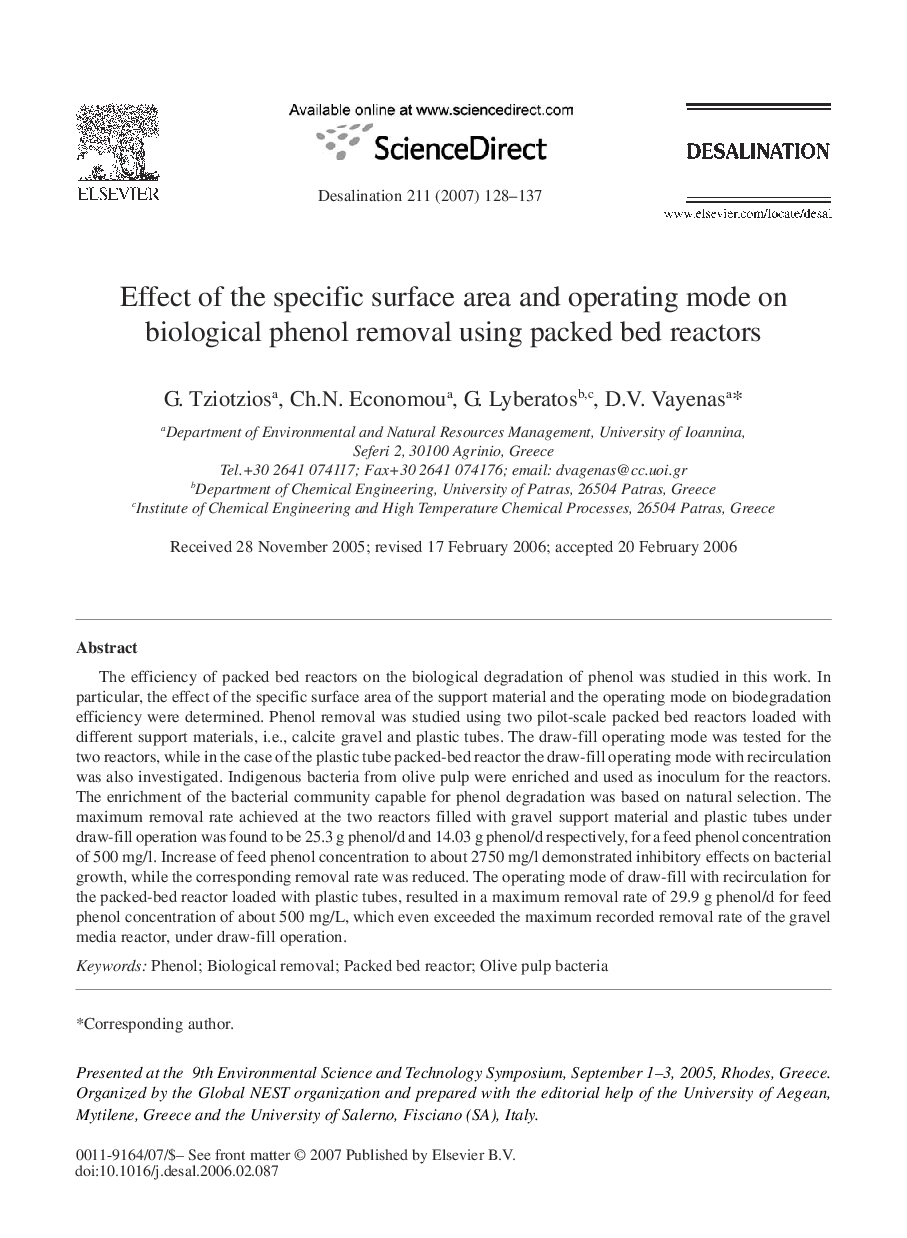| Article ID | Journal | Published Year | Pages | File Type |
|---|---|---|---|---|
| 627992 | Desalination | 2007 | 10 Pages |
The efficiency of packed bed reactors on the biological degradation of phenol was studied in this work. In particular, the effect of the specific surface area of the support material and the operating mode on biodegradation efficiency were determined. Phenol removal was studied using two pilot-scale packed bed reactors loaded with different support materials, i.e., calcite gravel and plastic tubes. The draw-fill operating mode was tested for the two reactors, while in the case of the plastic tube packed-bed reactor the draw-fill operating mode with recirculation was also investigated. Indigenous bacteria from olive pulp were enriched and used as inoculum for the reactors. The enrichment of the bacterial community capable for phenol degradation was based on natural selection. The maximum removal rate achieved at the two reactors filled with gravel support material and plastic tubes under draw-fill operation was found to be 25.3 g phenol/d and 14.03 g phenol/d respectively, for a feed phenol concentration of 500 mg/l. Increase of feed phenol concentration to about 2750 mg/l demonstrated inhibitory effects on bacterial growth, while the corresponding removal rate was reduced. The operating mode of draw-fill with recirculation for the packed-bed reactor loaded with plastic tubes, resulted in a maximum removal rate of 29.9 g phenol/d for feed phenol concentration of about 500 mg/L, which even exceeded the maximum recorded removal rate of the gravel media reactor, under draw-fill operation.
